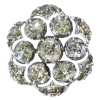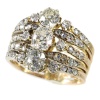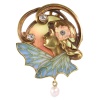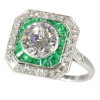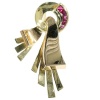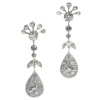Nous offrons des facilités de paiement pour le bijou de vos rêves. Demandez nous les détails. Expédition assuré gratuite !
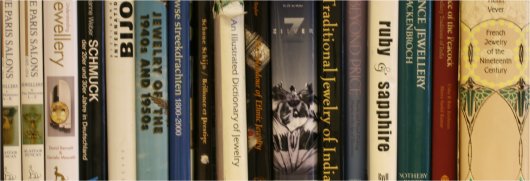
Antique jewelry glossary
Welcome to our extensive antique jewelry glossary with around 1,500 jewelry related entries.If you feel you are missing an explanation, feel free to let us know and we will add it.
A - B - C - D - E - F - G - H - I - J - K - L - M - N - O - P - Q - R - S - T - U - V - W - X - Y - Z all
Saint George and the Dragon
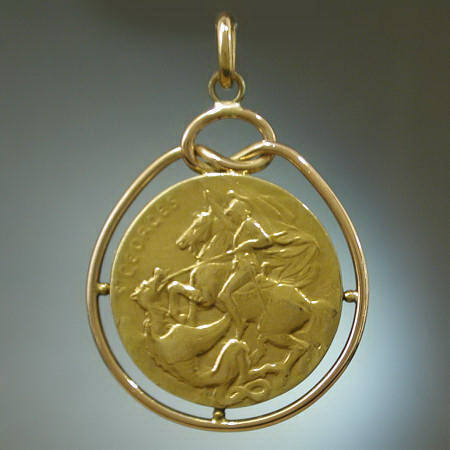
An admonition to the Company from retired Sargent MacGregor (C. Knutson):
"Of course ye all ken that it is counter tae the regulations of Ms Majestie Gustavus Adolphus himself, for any soldier tae use inchantments or magicks. In truth, most of
ye have heard the regulation read by our own company chaplain: "Nae commander, nor private souldier whatsaeever, shall use any kind of Idolatry, Witchcraft, or Inchantment
of Armes, whereby God is dishonoured, upon pain of death."1 However, being for the most, poor, ingnorant Hielanders ye may be unawares of the customs of the Continent. Therefore, tae the
end of preventing ye from being lead astray into temptation by your own ignorance, I will show ye a few charms and talismans whereby ye can "avoid" them if they be offered tae ye."
One of the most widely used charms was a coin with the image of St. George, patron saint of knights and fighting soldiers. This type of talisman developed from the Mansfeld thaler. First minted in 1521, it was commissioned by a Count von Mansfeld and honored his family's patron saint. An imperial officer was said to have been shot in battle, but saved from injury by a Mansfeld thaler he carried. The tale quickly spread and the cost of the thalers rose, thanks to smart middlemen, 10-20 times the original price.
Faith in the legend was renewed when a colonel of the Sachsen family, von Lisbau was supposedly twice saved by a Mansfeld thaler sewn into his clothing. During the 30 Years War and the wars against the Turks it is said that all officers and even some common soldiers wore these thalers. Eventually, demand was so great that some businessman started minting a special St. George talisman. These talismans were of various sizes, silver, gilt, or bronze, and all one type. On one side was St. George on horseback, thrusting his lance at a dragon with an inscription: "S. GEORGRJS. EQUITUM PATRONUS." (St. George, protector of knights). The other side had a ship with a taut sail on a rough sea and Christ asleep on the deck with two terrified apostles. A wind blows through a small cloud into the sail. The inscription: "IN TEMPESTATE SECURITAS. (Safety, or security in the storm). For our purposes, it may be this type of charm that Gustavus is referring to as "idolatry" - the worshiping, or paying to a saint was disapproved by Protestants. However, it would be appropriate to have some as personal accoutrements since they seem to have been so common.
From: www.clanntartan.org



